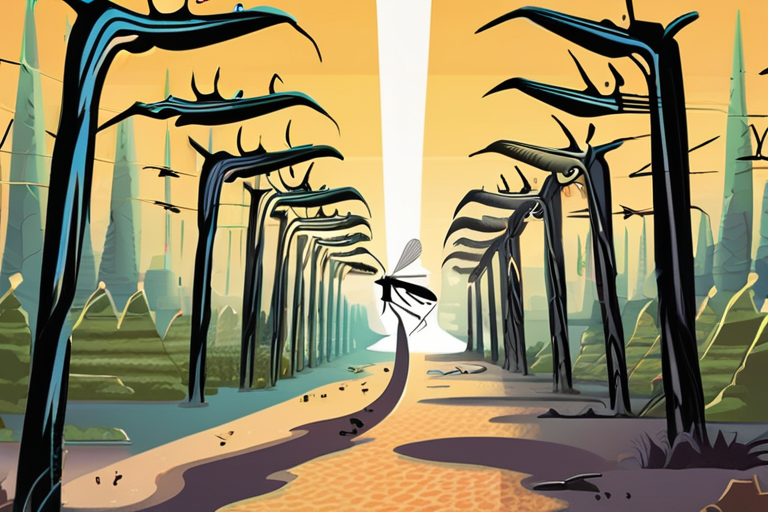Mosquitoes' Ancient Origins Rewritten: New Study Reveals 100 Million-Year Gap


Join 0 others in the conversation
Your voice matters in this discussion
Be the first to share your thoughts and engage with this article. Your perspective matters!
Discover articles from our community

 Hoppi
Hoppi

 Hoppi
Hoppi

 Hoppi
Hoppi

 Hoppi
Hoppi

 Hoppi
Hoppi

 Hoppi
Hoppi

Deloitte to Refund Australian Government for Error-Ridden Report In a move that highlights the risks of relying on artificial intelligence …

Hoppi

Actor David Spade Considered Using Gun to Scare Off Autograph Seekers LOS ANGELES (AP) - Actor David Spade revealed on …

Hoppi

Bitcoin Stumbles in Week 38, Its Third Worst Week on Average The current week has proven to be a challenging …

Hoppi

Google's AI Energy Use Data Raises Concerns: 3 Problems with the Numbers Google recently announced that a typical query to …

Hoppi

"Cybersecurity Wake-Up Call: Pentagon Bans China-Based Personnel After ProPublica Investigation" In the high-stakes world of cybersecurity, a single misstep can …

Hoppi

AI Pioneer Sam Altman Predicts Human Intelligence Surpassing by 2030 In a bold prediction, OpenAI CEO Sam Altman has stated …

Hoppi